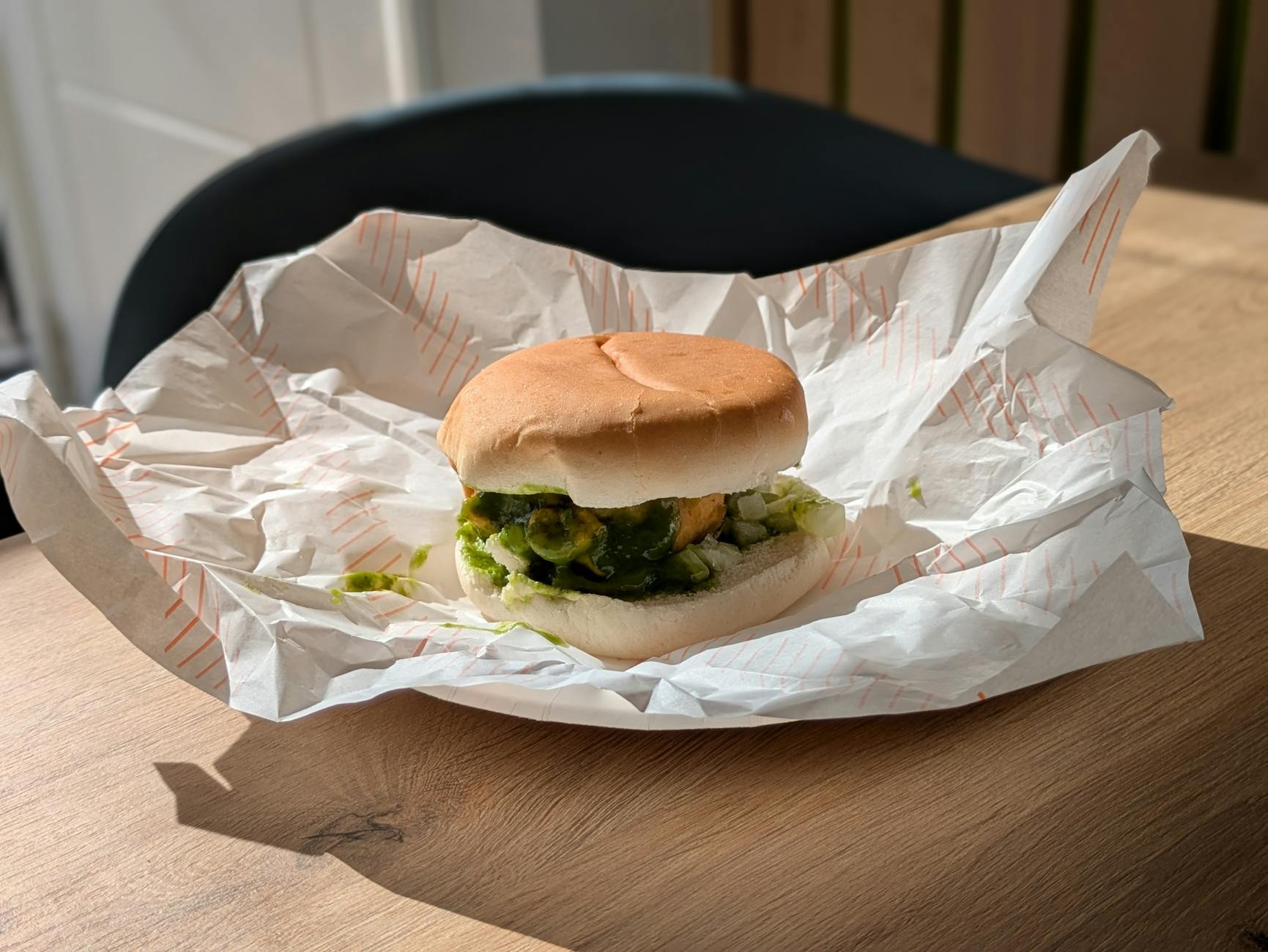Grenada Food Guide
Content Information
Recently updated🔥Current Food Trends 2025
What's happening in Grenada's culinary scene right now
Grenada's culinary scene in 2025 celebrates its identity as the 'Spice Isle' with nutmeg featuring prominently in both savory and sweet dishes. The national dish Oil Down represents the island's cultural fusion and communal dining traditions. Caribbean-African-Indian influences blend in dishes like roti, callaloo soup, and curry preparations. Coastal fishing communities provide fresh lambi (conch), crab, and seafood daily. St. George's Market and Fish Friday at Gouyave showcase vibrant street food culture. Organic spice production supports farm-to-table restaurants and culinary tourism. Cocoa heritage preserved through chocolate tours at Belmont Estate and artisan chocolate makers. Rum production at historic River Antoine Distillery maintains 18th-century methods. Sustainable fishing practices protect marine resources. Food festivals celebrate harvest seasons and cultural traditions. Ital food (Rastafarian vegetarian cuisine) gaining popularity. Local chefs elevate traditional recipes with contemporary presentations while maintaining authentic flavors. Tourism-driven restaurant scene in Grand Anse beach area balances international offerings with Grenadian authenticity.
Food Safety Tips
Essential food safety information to help you enjoy Grenada's cuisine safely and confidently.
While tap water is generally treated, it's recommended to drink bottled water to avoid potential stomach issues.
Visitors may not be accustomed to the local water supply, which can cause digestive discomfort.
Always thoroughly wash fruits and vegetables before consumption.
Local produce may be handled by multiple people and exposed to environmental conditions.
When buying seafood, ensure it's fresh by checking for clear eyes and a fresh ocean smell.
Seafood is abundant in Grenada but should be consumed when fresh to avoid foodborne illness.
Choose busy street food vendors where the food turnover is high.
Popular vendors typically serve fresher food due to high turnover rates.
Be aware of potential cross-contamination in smaller eateries.
Some smaller establishments may have limited kitchen space and equipment.
Be cautious with dairy products, especially in warmer weather.
Dairy products can spoil quickly in tropical climates if not properly refrigerated.
Dietary Options
vegetarian
MEDIUM AVAILABILITYVegetarian options are available in Grenada, especially in tourist areas. Many local dishes incorporate vegetables, fruits, and legumes, although they may sometimes be cooked with meat-based broths.
vegan
LOW AVAILABILITYPure vegan options are less common in traditional Grenadian cuisine, but can be found in some restaurants, especially in tourist areas. Ital food (Rastafarian vegetarian/vegan cuisine) may be available in some locations.
gluten-free
MEDIUM AVAILABILITYMany traditional Grenadian dishes are naturally gluten-free, as they rely on ingredients like rice, root vegetables, and fruits. However, awareness of gluten-free requirements may be limited in smaller establishments.
kosher
VERY LIMITED AVAILABILITYKosher options are very limited in Grenada. Some international hotels may accommodate requests, but it's advisable to bring your own food or contact local Jewish communities if any exist.
Common Allergens
Shellfish
HIGH PREVALENCEShellfish is commonly used in Grenadian cuisine, particularly in coastal areas.
COMMONLY FOUND IN:
Peanuts
MEDIUM PREVALENCEPeanuts and peanut oil may be used in some local dishes and sauces.
COMMONLY FOUND IN:
Coconut
HIGH PREVALENCECoconut milk and coconut oil are staples in Grenadian cooking.
COMMONLY FOUND IN:
Gluten
MEDIUM PREVALENCEFound in many breads and pastries, including roti and some dumplings.
COMMONLY FOUND IN:
Dairy
MEDIUM PREVALENCEUsed in various desserts and some main dishes.
COMMONLY FOUND IN:
Essential Food Experiences
These iconic dishes represent the must-have culinary experiences that define Grenada's food culture for travelers.

Oil Down
Grenada's national dish, a hearty one-pot stew representing the island's history and cultural fusion. It's named for the coconut milk that simmers down and releases its oil during cooking. Combines breadfruit, salted meat, callaloo leaves, dumplings, and vegetables all boiled in coconut milk with turmeric until the liquid is absorbed. The most essential ingredients are coconut milk, turmeric, breadfruit, and callaloo.

Callaloo Soup
A vibrant green soup made with the leafy green vegetable callaloo (dasheen leaf), a staple across the Caribbean. The taste is somewhat similar to spinach, making it ideal for soup. According to local experts, you don't come to Grenada and start a meal without a bowl of callaloo soup. Prepared with okra, coconut milk, herbs, and spices.

Roti
A popular Indo-Caribbean street food, a soft flatbread filled with curried meat, vegetables, or chickpeas. The soft roti absorbs the flavorful curry filling, creating a satisfying handheld meal.

Lambi (Conch)
Grenadian lambi (conch) is a popular seafood delicacy. The mild white meat of this mollusk is marinated with a blend of local spices, herbs and seasonings to tenderize it, then prepared curried, stewed, or grilled. Conch often appears curried or in a stew. Available at Fish Friday in Gouyave.

Nutmeg Ice Cream
A unique ice cream that captures the distinct flavor of nutmeg, Grenada's most famous export. This creamy treat encapsulates the island's essence as the 'Spice Isle', offering a subtle, spicy kick that enhances its sweetness. You can find nutmeg ice cream at most restaurants and ice cream parlors.

Crab Back
Land crab meat mixed with breadcrumbs, local herbs, and spices, then stuffed back into the crab shell and baked. A signature Grenadian dish showcasing local crab preparation techniques.

Pelau
A one-pot dish of caramelized meat (usually chicken or beef), rice, pigeon peas, and vegetables, all cooked together with coconut milk and spices. A Caribbean comfort food staple.

Fish Broth
A hearty soup made with fresh local fish, ground provisions (root vegetables like yam, sweet potato, green banana, pumpkin), and seasoned with local herbs and spices. Light, savory, and slightly tangy with a delicate fish flavor.

Doubles
Popular street food with Indo-Trinidadian origins, featuring two flatbreads called 'bara' filled with curried chickpeas and various toppings like tamarind sauce, cucumber chutney, and pepper sauce.

Cocoa Tea
A traditional hot chocolate drink made from local cocoa balls or sticks, spices like cinnamon and nutmeg, and often sweetened with condensed milk. Represents Grenada's cocoa heritage.
Essential Food Experiences
Immerse yourself in Grenada's culinary culture through these authentic food experiences.
St. George's Market Square Food Tour
Explore the vibrant Market Square in St. George's, sampling local spices, tropical fruits, and street food. Don't miss the nutmeg products and local chocolate from the 'Spice Island'.
Must Try:
Fish Friday at Gouyave
Every Friday night, the fishing village of Gouyave transforms into a seafood festival. Enjoy freshly grilled fish, lobster, and lambi (conch) prepared by local vendors.
Must Try:
Belmont Estate Chocolate Tour
Visit a working cocoa plantation to learn about Grenada's chocolate production from bean to bar. Taste organic chocolate and traditional cocoa tea while touring the historic estate.
Must Try:
River Antoine Rum Distillery
Tour the oldest functioning water-powered distillery in the Caribbean, operating since 1785. Sample potent Rivers rum (up to 75% alcohol) made using traditional methods.
Must Try:
Regional Specialties & Local Favorites
Discover the authentic regional dishes and local favorites that showcase Grenada's diverse culinary traditions.

Fish Broth
Region: Coastal areas
A hearty soup made with fresh local fish, ground provisions (root vegetables), and seasoned with local herbs and spices.
Allergens:

Crab Back
Region: Island-wide
Land crab meat mixed with breadcrumbs, local herbs, and spices, then stuffed back into the crab shell and baked.
Allergens:

Doubles
Region: Urban areas
Another popular street food with Indo-Trinidadian origins, Doubles features two flatbreads called 'bara' filled with curried chickpeas and various toppings.
Allergens:

Pelau
Region: Island-wide
A one-pot dish of caramelized meat (usually chicken or beef), rice, pigeon peas, and vegetables, all cooked together with coconut milk and spices.
Allergens:

Cocoa Tea
Region: Island-wide
A traditional hot chocolate drink made from local cocoa balls or sticks, spices like cinnamon and nutmeg, and often sweetened with condensed milk.
Allergens:
Regional Specialties
Discover unique dishes from different regions of Grenada.
Oil Down
St. George's
Grenada's national dish combining salted meat, breadfruit, callaloo, dumplings, and vegetables cooked in coconut milk with turmeric. The name comes from the coconut oil that remains after cooking.
Key Ingredients:
Fish Friday Lambi
Gouyave
Conch prepared various ways - curried, stewed, or grilled. This fishing village's specialty showcases the versatility of this Caribbean mollusk, often served with provisions.
Key Ingredients:
Cocoa Tea
St. Patrick
Traditional hot chocolate made from local cocoa balls, spiced with nutmeg and cinnamon. This breakfast drink represents Grenada's cocoa heritage and is often served with coconut bake.
Key Ingredients:
Smoke Food
Carriacou
A hearty one-pot dish from Grenada's sister island, combining smoked herring or mackerel with provisions, coconut milk, and local seasonings. Reflects the island's maritime heritage.
Key Ingredients:
Regional Cuisine Highlights
Explore the diverse culinary landscapes across different regions of Grenada.
St. George's
The capital city offers the most diverse culinary scene on the island, with both traditional Grenadian foods and international options. As a port city, it has particularly good seafood options.
Cultural Significance:
St. George's cuisine represents the melting pot of cultures in Grenada, with influences from African, Indian, European, and indigenous Caribbean cooking.
Signature Dishes:
- Oil Down
- Lambi (Conch)
- Fresh seafood
- Callaloo Soup
Key Ingredients:

Carriacou
This smaller island in the Grenadian archipelago has its own distinct culinary traditions, with an emphasis on hyper-local ingredients and traditional preparation methods.
Cultural Significance:
Carriacou's cuisine maintains some of the most traditional cooking methods and dishes in the country, with fewer international influences than the main island.
Signature Dishes:
- Fish broth
- Crayfish
- Goat dishes
- Local corn dishes
Key Ingredients:

Sweet Delights & Desserts
Indulge in Grenada's traditional sweet treats and desserts.

Nutmeg Ice Cream
Region: Island-wide
A creamy ice cream infused with Grenada's famous nutmeg, offering a unique flavor that represents the island's spice heritage.

Coconut Fudge
Region: Island-wide
A sweet, dense confection made from grated coconut, sugar, and spices, often flavored with local nutmeg or cinnamon.

Sweet Potato Pudding
Region: Island-wide
A baked dessert made with mashed sweet potatoes, coconut milk, spices, and sometimes rum, creating a rich and fragrant treat.
Traditional Beverages
Discover Grenada's traditional drinks, from locally produced spirits to regional wines.

Rivers Rum
Grenada's legendary overproof rum from River Antoine Estate, reaching up to 75% alcohol. Made using 18th-century methods with fresh sugarcane juice, it's among the world's strongest rums.

Rum Punch
The Caribbean classic following the rhyme 'One of sour, two of sweet, three of strong, four of weak.' Made with local rum, lime juice, sugar syrup, water, and grated nutmeg.

Carib Beer
The local lager brewed in Grenada since 1961. This crisp, refreshing beer pairs perfectly with spicy Grenadian cuisine and beach gatherings.
Soft Beverages
Discover Grenada's traditional non-alcoholic drinks, from local teas to refreshing juices.

Mauby
A traditional Caribbean drink made from the bark of the mauby tree, sugar, and spices. It has a unique, slightly bitter taste that's very refreshing. In Grenada, it's often seasoned with cinnamon and other local spices.

Sorrel Drink
Made from the sepals of the sorrel plant (roselle/hibiscus), this vibrant red drink is especially popular during Christmas season. In Grenada, it's often seasoned with the island's famous spices for a distinctive flavor.

Fresh Coconut Water
Straight from young green coconuts, this natural drink is highly popular in Grenada. Vendors can be found selling fresh coconuts on beaches and roadsides across the island.

Golden Apple Juice
Made from a tropical fruit known as golden apple or June plum (Spondias dulcis), this juice is tangy, sweet, and refreshing. It's a popular local drink that represents Grenada's abundance of tropical fruits.